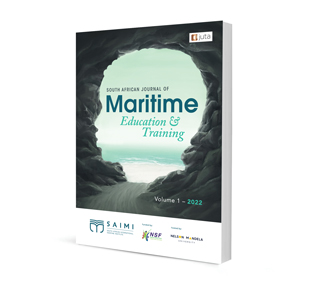
South African Maritime Skills Supply and Demand
Author Derek Zimmerman
ISSN: 2790-783X
Affiliations: Rand International Capital, Gqeberha, South Africa.
Source: South African Journal of Maritime Education and Training, Volume 1 Issue 1, p. 63-70
https://doi.org/10.47348/SAJMET/2022/i1a7
Abstract
The South African International Maritime Institute (SAIMI) is engaged in answering the questions that centre around whether the country’s maritime skills supply matches the industry’s demand. The SAIMI commissioned a study1 to evaluate the maritime skills situation in South Africa, culminating in a final report in 2019. The purpose of this study was to determine the overall demand for maritime and ocean economy skills in order to grow the sector, and to determine whether there is adequate capacity within the skill supply framework to meet this demand. This exercise required an assessment of the anticipated demand and the current supply of skills capacity in South Africa, with any surplus or deficit being clearly highlighted. The author investigated a number of credible studies and international best practice examples within a framework supported by the latest skills data about the supply and demand dynamics in the maritime economy arena. It was found that South Africa is producing graduates with maritime-related qualifications in sufficient numbers, but not with the relevant types of skills required by the industry, which are mainly technical and professional maritime skills. A shift in emphasis is required to prioritise scarce, critical and future-proof skills for the growth of the maritime economy, with a particular emphasis on the maritime skills that will be needed in the context of the fourth industrial revolution (4IR). This work was presented to a representative platform of stakeholders in industry, academia and government at the SAIMI Forward Thinking Conference for Maritime Education and Training Excellence2 to review current maritime skills capacity against future demand and to consider collaborative and collective ways to close the skills gap. The outcome of the conference confirmed this report’s findings and recommendations to address these shortcomings. A focussed and driven programme is required within the South African maritime environment to align and accelerate all maritime education, research and skills enhancement to the market needs of the maritime sector, with the private sector directly involved throughout.